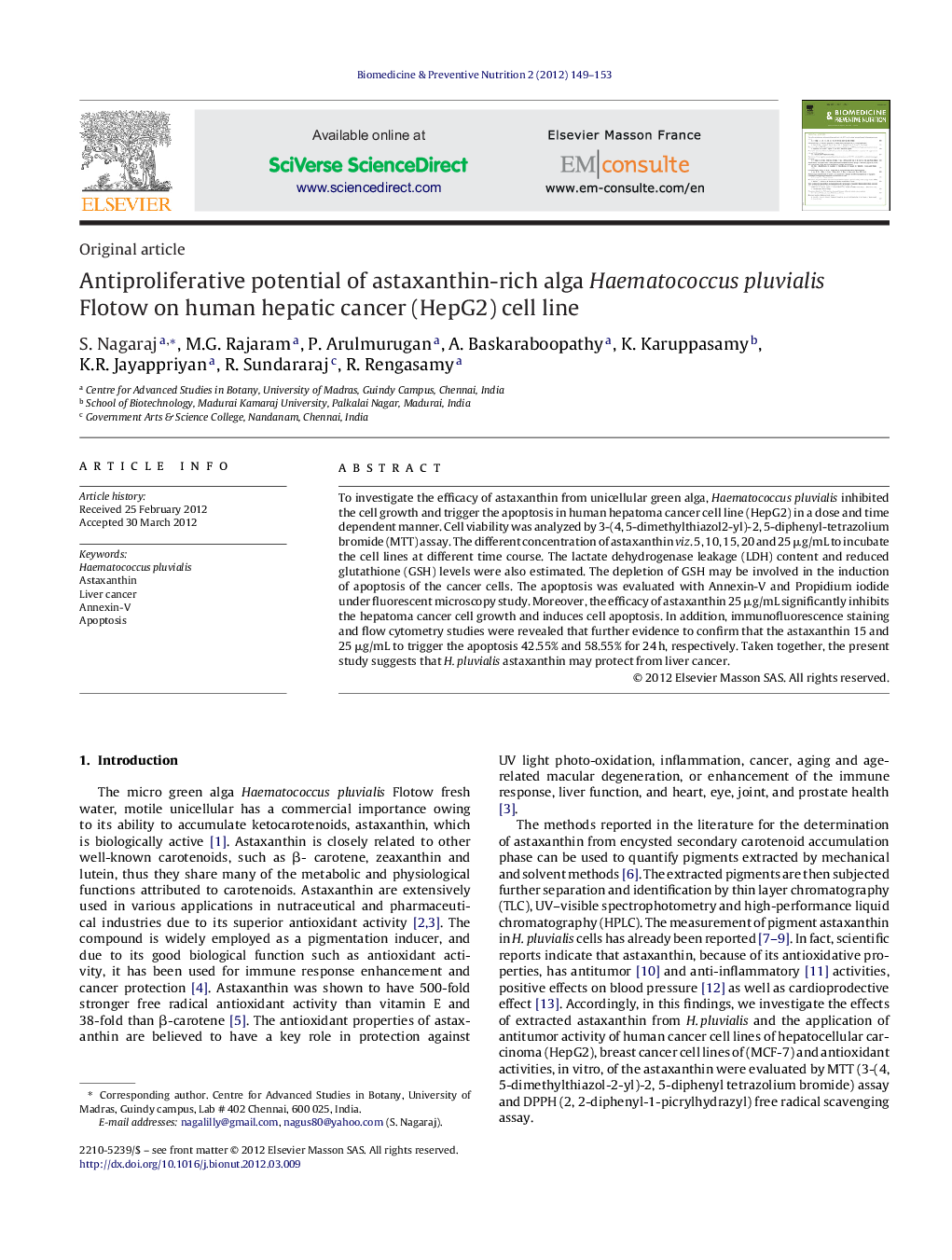| Article ID | Journal | Published Year | Pages | File Type |
|---|---|---|---|---|
| 2683671 | Biomedicine & Preventive Nutrition | 2012 | 5 Pages |
Abstract
To investigate the efficacy of astaxanthin from unicellular green alga, Haematococcus pluvialis inhibited the cell growth and trigger the apoptosis in human hepatoma cancer cell line (HepG2) in a dose and time dependent manner. Cell viability was analyzed by 3-(4, 5-dimethylthiazol2-yl)-2, 5-diphenyl-tetrazolium bromide (MTT) assay. The different concentration of astaxanthin viz. 5, 10, 15, 20 and 25 μg/mL to incubate the cell lines at different time course. The lactate dehydrogenase leakage (LDH) content and reduced glutathione (GSH) levels were also estimated. The depletion of GSH may be involved in the induction of apoptosis of the cancer cells. The apoptosis was evaluated with Annexin-V and Propidium iodide under fluorescent microscopy study. Moreover, the efficacy of astaxanthin 25 μg/mL significantly inhibits the hepatoma cancer cell growth and induces cell apoptosis. In addition, immunofluorescence staining and flow cytometry studies were revealed that further evidence to confirm that the astaxanthin 15 and 25 μg/mL to trigger the apoptosis 42.55% and 58.55% for 24 h, respectively. Taken together, the present study suggests that H. pluvialis astaxanthin may protect from liver cancer.
Related Topics
Health Sciences
Medicine and Dentistry
Endocrinology, Diabetes and Metabolism
Authors
S. Nagaraj, M.G. Rajaram, P. Arulmurugan, A. Baskaraboopathy, K. Karuppasamy, K.R. Jayappriyan, R. Sundararaj, R. Rengasamy,
